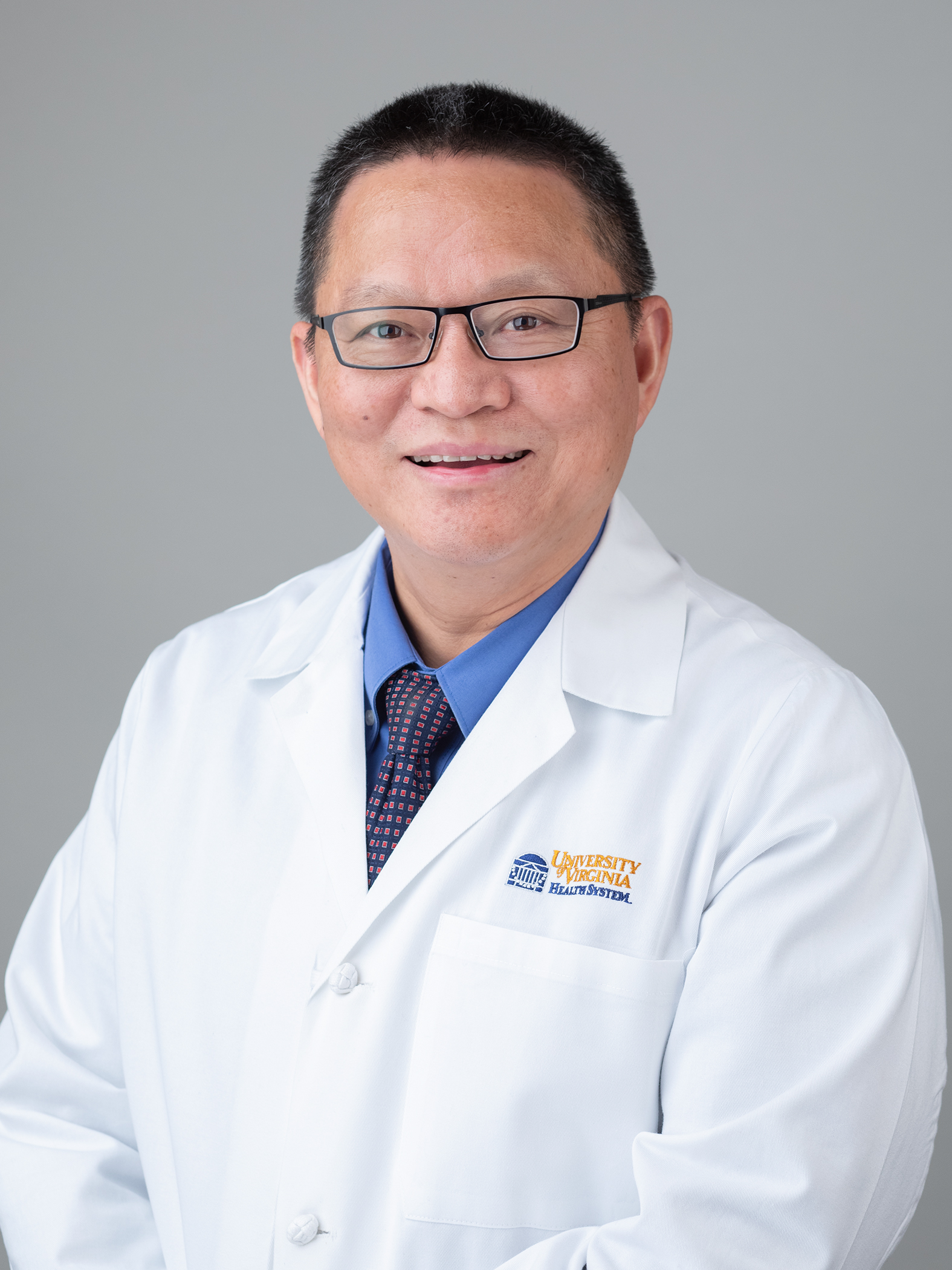At a Glance
Title: Professor
Residency: Family Medicine, University of Kentucky
Fellowship: Cancer Prevention, National Cancer Institute
Doctor of Philosophy: Preventive Medicine, University of Southern California
Master of Science: Applied Biometry, University of Southern California
Master of Public Health: Tongji Medical University
Medical Degree: Tongji Medical University
Li Li, MD, PhD, is an expert in primary care, population health and clinical translational research. He joins UVA as chair of the Department of Family Medicine, director of Population Health and co-director of the Cancer Control and Population Health program.
You started your career in 2000 at the Case Western Reserve School of Medicine, where you remained until coming to UVA. What induced you to make the move to UVA?
Moving to the Family Medicine Department at UVA was a great opportunity for me in a variety of ways. The department has an outstanding reputation, particularly in evidence-based medicine. It also has a very strong residency program. Immersing young physicians in the practice and theory of evidence-based medicine is critical to the future of primary care and public health in general. Finally, clinical and research work done in the department is closely aligned with the Cancer Center’s mission. Coming here would enable me to expand my work on the relationship between primary care and cancer prevention and control. When I added all that up, the invitation to come to UVA was a dream come true.
Your background is in family medicine and population health. What’s the connection for you that brings these two specialties together?
Individual care and population health are both on the same continuum. Primary care is the basis for population health. However, it is important to remember that only 10 percent of a person’s health can be affected by what a physician can accomplish in the clinic. A patient is part of a family, which is part of a community, which is part of the greater population. To be truly effective as primary care physicians, you have to work at each level. You have to consider the social determinants of health like behavior and lifestyle. It is this broader model of primary care that I embrace.
Colorectal cancer is a special interest of yours. How does your background in preventive medicine and population health shape your research in this area?
If you look at colorectal cancer at the population level, you’ll find significant racial disparities in the incidence of this disease. I co-led a recently awarded $3 million NIH grant that aims to understand the genetic, lifestyle and community factors that drive these disparities. For instance, if you live in a neighborhood where the built environment does not facilitate people exercising and walking for instance, it will affect your health. With a better understanding of all the factors affecting cancer disparities, we can promote medical and social policies that benefit specific populations and society as a whole.
How does evidence-based care fit into this equation?
Evidence-based care provides the connections. It is the evidence that allows you to provide the best possible interventions at each level and to tie the levels together.
But pursuing evidence-based care can be difficult when the evidence comes in a variety of formats. Of course, the gold standard for best practices is the double-blind clinical trial, but there are simply no clinical trials for many issues that come up in the course of primary care practice. In these cases, there may be useful data in such sources as journal articles and reviews, conference presentations and cohort studies. You have to have a rigorous way to extrapolate from a variety of data to arrive at best practices. UVA Family Medicine is a leader in developing these information mastery techniques. In fact, our faculty development fellowships are built around information mastery.
You have a master’s in statistics. How does this shape your approach to your practice?
Even when there are clinical trials, moving from the population level to the individual level — taking the information from a trial and applying it to the patient in front of you — is still challenging. Physicians consciously or unconsciously make decisions based on probabilities; they are mentally doing the math. Having an understanding of statistics gives you a better appreciation for what the probabilities mean in an individual case.
What is unique about the primary care provided at UVA?
While we see all sorts of patients, the type of care we provide is especially helpful for those with a complex medical history. We’ll serve as the patient’s point of contact at UVA, answering their questions, directing them to the most relevant specialists, coordinating their care and ensuring its continuity. We have five practice sites in the Charlottesville area, and four have received Level 3 NCQA certification as a Patient-Centered Medical Home, using a team-based approach to administering care.
What other initiatives is the department pursuing?
We are always looking for opportunities where our expertise in providing complex care is critical. The department operates a Transgender Health Clinic as well as the International Family Medicine Clinic, which serves the refugee community in central Virginia. In collaboration with UVA Cancer Center, we will be launching a cancer survivorship clinic at our Pantops Primary and Specialty Care and Integrative Medicine Clinic.
We are also deeply committed to bringing advances in primary care to other parts of the world. Global health programs typically focus on infectious disease, but in a lot of countries, chronic noncommunicable diseases have become more prominent, just as they are here. Our efforts are important because nations with a strong primary care base usually have better health outcomes at the population level.
How are you finding living in Charlottesville?
I’m really enjoying it. My colleagues in the department and around the medical center have been very welcoming, and Charlottesville is a great place. From my first interview [at UVA], I’ve felt very comfortable here, both professionally and personally. I feel like I’ve come home.
To refer a patient to UVA Family Medicine, call UVA Physician Direct at 800.552.3723.
